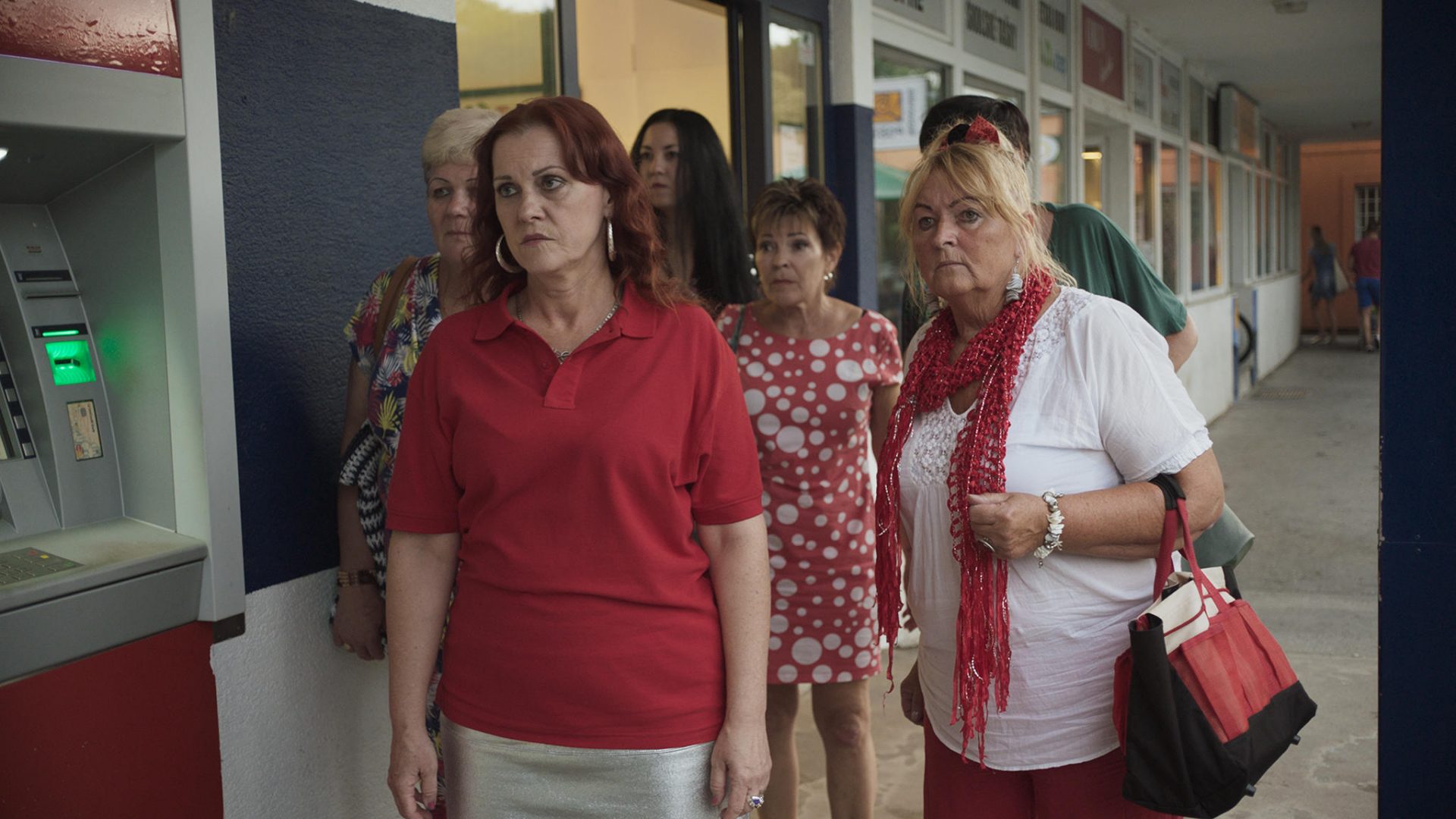Domestic abuse is a weighty enough theme for any film to tackle and there are plenty of movies which have struggled to treat it with the appropriate gravitas while still engaging the audience in the process. Czech director Mira Fornay sidesteps that problem neatly by sacrificing the former almost entirely in favour of the latter, treating us to a surreal and playful take on the subject which certainly entertains but perhaps doesn’t quite deliver as investigative or as impactive a result as warranted.
The narrative structure is divided into four constituent parts. The first is a minute-long prologue featuring a chorus of women on the banks of a lake relaying a fable with ominous synchronicity to an anonymous figure in the water. This succinct scene sows seeds that will blossom unpredictably time and time again in the remaining three acts, each of which recounts a different version of events with a similar outcome in a style reminiscent of Groundhog Day gone off the rails.
The protagonist of the piece is Jaroslav (Jaroslav Plesl), a moping and pathetic ambulance driver who lives in abject fear that his policewoman wife Blanka (Jazmína Cigánková) will take their three children and desert him. Although Jaroslav only appears as the feeblest of figures onscreen, we learn that he is guilty of the same domestic abuse which Blanka’s father Gustav (Bohuslav Zárychta) inflicted on her mother. Nonetheless, Jaroslav finds himself at the mercy of his spouse, who has secreted their kids at her mother’s house and refuses to furnish him with the key to her gate… unless.
If Jaroslav is to rescue his children from apparently endless boredom and reunite the family, he must convince his own mother Dorota (Regina Rázlová) to part with her apartment and gift it to Blanka. Dorota will only agree if her ex-husband and Jaroslav’s father Kamil (Jan Alexander) cooks dinner for the entire family, including Dorota’s new beau Gustav, both of whom he detests. Kamil assents on the condition that Gustav kills an ox for the occasion. This bizarre chain of stipulations is the framework upon which the storyline develops, complete with more appearances from frogs, swimmers and the Greek chorus. Confused yet? Good.
The fairy-tale aspects of the story are reminiscent of writers such as Mikhail Bulgakhov or Lewis Carroll, while their strangeness is reinforced by unexpected plot developments, the resurrection of deceased characters for subsequent acts and the occasional breakage of the fourth wall. All in all it makes for a disorientating and impudent but largely flippant foray into the film’s themes, which are only grounded by the frequent and graphic scenes of sex and violence. The end result? A messy and imperfect delve into a dark subject, but one which certainly intrigues even as it bewilders.
